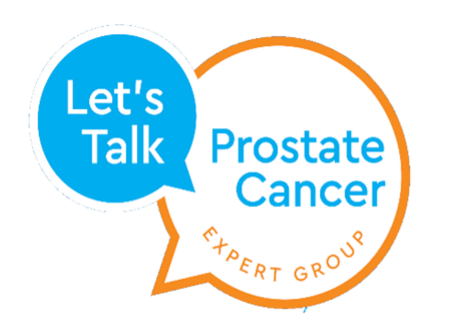My husband Mike was diagnosed with prostate cancer at the age of 52, a cancer I had previously understood to be an old man’s disease.
In my experience, men with prostate cancer are often dismissed as having one of the ‘better cancers’ because people mistakenly believe it is less serious. There are no ‘better’ cancers and, sadly, the physical and emotional toll of Mike’s prostate cancer was far beyond what we could ever have imagined.
I watched the man I love fall to pieces. Eventually, we discovered counselling and – being able to talk to a specialist who was able to equip us with tools and resources – saved his life. I have seen first-hand that not enough emphasis is given to the mental health of prostate cancer patients and their partners. Unfortunately, the COVID-19 pandemic has exacerbated these issues for many, compounding their feelings of loneliness and isolation and worsening mental health issues for people living with cancer and their loved ones.
Both my husband Mike and I have had cancer. I know both as a caregiver, and as a patient, how important being able to access the right support is. Prostate cancer is a couple’s disease, and my biggest wish would have been to receive better information and education on how to care for Mike and how to get access to the right treatment and services, at the right time. What shocked us most was the lack of holistic understanding from health professionals: people need to be treated as a whole, looking at their physical, mental and sexual health in a joined-up way. People – and they are people, not just patients – need a holistic treatment plan that includes multi-disciplinary teams and complementary therapies, including counselling and physiotherapy.
Currently, prostate cancer is the most frequently diagnosed cancer among men, with more than two million people living with the disease across Europe. Yet I believe there are unacceptable inequalities when it comes to cancer treatment and services. Breast cancer, for example, is given far greater prominence by policymakers and women are offered a variety of services, including breast reconstruction. Breast cancer doesn’t have the same stigma attached to is as prostate cancer does and traditionally women are more open about their issues compared to men when it comes to health. These inequalities need to be addressed if we are to help raise awareness, dismantle the stigma and ensure equal prominence is given by policymakers to cancers that affect both men and women.
Based on my experience as a member of the Let’s Talk Prostate Cancer Expert Group, this is a Europe-wide problem that policymakers need to urgently prioritise. Then, we need improved resources so patients, partners and families in Europe can be better informed and supported throughout their diagnosis, treatment and ongoing care.
Knowledge is power and so many decisions along this journey cannot be made unless you have the right knowledge. Things need to change for men so the next generation of partners, sons, brothers, friends can beat prostate cancer. The cancer patient’s voice must be heard.
Astellas Pharma Europe Ltd., Amgen and Pfizer support the goals and objectives of the Let’s Talk Prostate Cancer Expert Group. The activities of the Expert Group are funded by Astellas Pharma Europe Ltd and Amgen.
ONC_2022_0125_UK. June 2022
